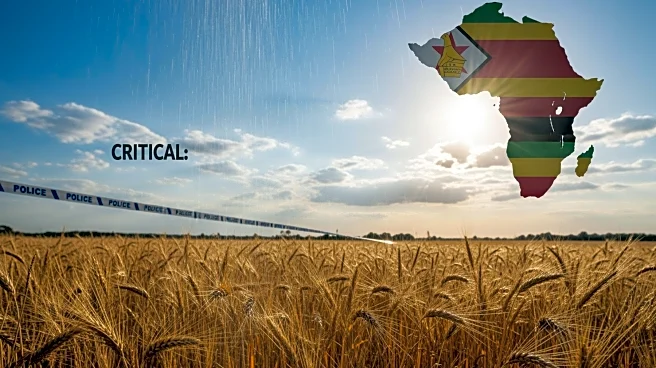What's Happening?
Zimbabwe is facing one of its worst droughts in decades, driven by the El Niño climate phenomenon. The drought has led to widespread food insecurity and malnutrition, affecting millions of people. In response, the European Union has funded aid groups
like CARE to distribute food and necessities to affected communities. The drought has compounded existing poverty issues, with many families losing crops and livestock. The EU is focusing on mitigating the effects of natural shocks and supporting alternative food sources to alleviate the crisis.
Why It's Important?
The drought in Zimbabwe has highlighted the country's vulnerability to climate-related shocks and the need for international support. EU aid is crucial in providing immediate relief to affected communities, but long-term solutions are needed to address the underlying issues of poverty and food insecurity. The situation underscores the importance of building resilience against climate change and investing in sustainable agricultural practices. The EU's involvement demonstrates the role of international cooperation in addressing humanitarian crises.
What's Next?
Zimbabwe will need to continue relying on international aid to manage the immediate impacts of the drought. The government and aid organizations may need to explore sustainable solutions to reduce dependency on rain-fed agriculture and improve food security. As the drought persists, there may be increased social tensions and challenges related to health and education. The international community's response to Zimbabwe's crisis could influence future aid strategies and highlight the need for climate adaptation measures.
Beyond the Headlines
The drought in Zimbabwe raises ethical questions about the responsibility of wealthier nations to support those facing environmental crises. It highlights the need for sustainable development and investment in infrastructure to reduce reliance on aid. The situation also underscores the importance of addressing social issues, such as gender-based violence and child marriages, which are exacerbated by economic hardship. Long-term solutions will require a collaborative approach, integrating local knowledge with international expertise and resources.
















